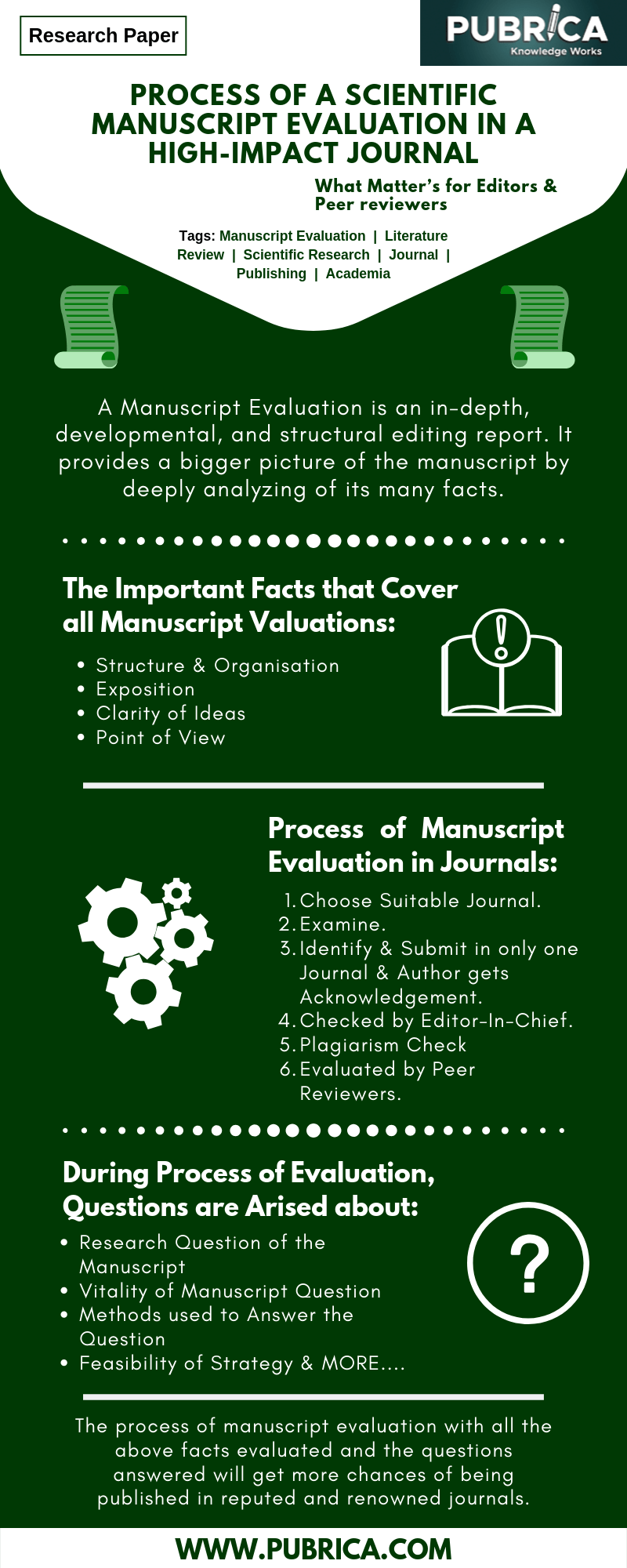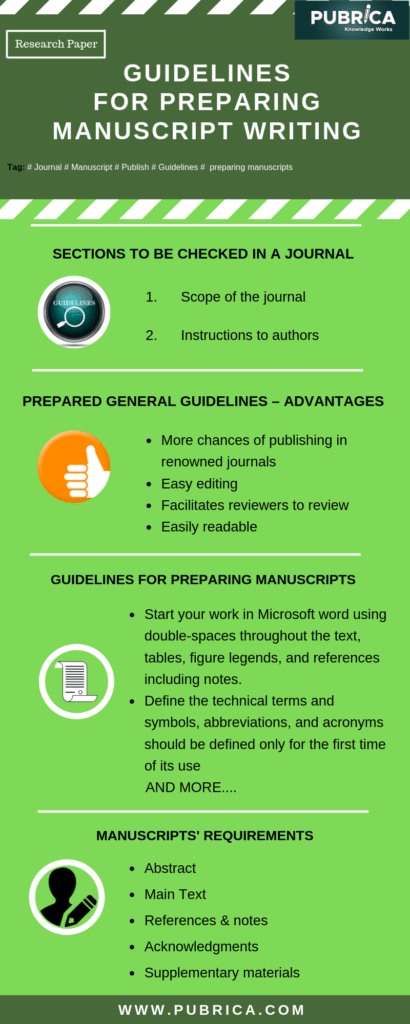
The Process of a scientific manuscript evaluation in a high-impact Journal – What Matter’s for Editors & Peer reviewers
October 1, 2019
Writing a Research Grant Proposal and a Research Grant Protocol in Medical Research
October 12, 2019Your dream of publishing in journals can only be fulfilled, if you prepare manuscripts as per guidelines. It is easier said than done. However, it is the only way for your work to be recognized and reach its target audience. Without which the manuscripts may only serve the academic purpose or for some, even not that.
The two sections you have to check for the guidelines in a journal is
- Scope of the journal
- Instructions to authors https://www.ncbi.nlm.nih.gov/pmc/articles/PMC5405644/
These two provide you with ample guidelines to prepare your manuscript writing to submit in the journal Publication. But the general guidelines for you to be prepared will give you the following advantages
- Increased possibility of publishing in renowned journals
- Easy editing without spending much time and cost
- Facilitates reviewers to review
- Not only easy reading for any reader but also to make them understand without any errors
Guidelines for preparing manuscripts:
- Start your work in Microsoft word using double-spaces throughout the text, tables, figure legends, and references including notes.
- Define the technical terms and symbols, abbreviations, and acronyms should be defined only for the first time of its use
- Use Times New Roman Font with 12 size
- Titles should be written within 100 characters including spaces
- Subheadings or short titles should not exceed 40 characters
- One-sentence summaries s should be within 125 characters complementing the title rather than repeating them
- Authors’ details with their affiliated institutions should be linked with subscript numbers and listed in the opening page after the title
- Abstract:
The abstract should be written approximately 150 words. It should be in a way that even a layperson should be able to understand your research in the easiest possible way. It also should be distinct from the main text and source of all background information of the study and should not contain abbreviations or citations. It should be written in the same order as:
- ▸ A brief background
▸ A sentence giving a broad introduction to the field of research
▸ A sentence on the detailed specific background of the study
▸ A brief explanation of the objectives and methods
▸ Results should contain the findings of the research in brief
▸ The final sentence should be the conclusions of the study

- Main text:
The main text of the manuscript should include all the details of your research. Use descriptive clauses in place of sub-headings for reports. But for research articles and reviews, subheadings can be used by clearly distinguishing them. Start with the introduction, which provides enough information to make it easy for the readers to understand the study.
- Reference & notes:
References and notes should be numbered in the order in which they are cited. All the reference should have a unique citation number within parentheses which are italicized like (18, 19) (20-21).
- Acknowledgments:
- ▸ Start by acknowledging the
non-author contributions
▸ Funding information in detail
▸ Contributions of all authors in any recommended model
▸ If there is any competing interest by an author, it should be listed, and a declaration is essential if there is none
- List of supplementary materials:
It should include
- ▸ Materials & methods:
It should be written in a way to make it possible for anyone interested to replicate your research.
- ▸ Tables:
It should supplement the text rather than duplicate it and has to be called out within it. It should be arranged as per the order of their citations in it and should contain
- Table legend should be the first sentence with a brief descriptive title
- All vertical columns should have a heading with the unit of measure in parentheses
- The units should not change within a column
- Footnotes should have information which is relevant to specific entries or parts of the table
- Figures should in numerical order and should be called within the text to be directly embedded in the Docx or PDF files.
If the above guidelines fail to meet your expectations, seek professional help in Scientific manuscript writing .
https://www.ncbi.nlm.nih.gov/pmc/articles/
MS_Preparation_Guide_for_Authors.pdf


